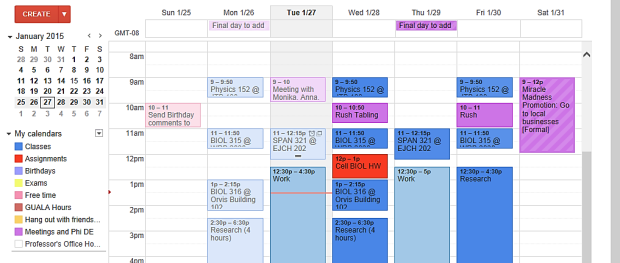Photo credit: Flickr/David Kingham
With a new year, often comes new experiences. Although, I am a big proponent of being intentional every day, there is something refreshing about a new year starting. For me, January 1st was a time dedicated to reflect on experiences in 2018 and what I want to happen this 2019. Creating intentions last year really made my year so fun, full of love and happiness. I am hoping and excited that this year will be filled with more love, happiness, success, and a great health.
In this blog, I will be explaining how I made goals this year. It is with the intention of being happy and health with all aspects of my life. I hope that the template below helps you be more intentional with your life and helps you learn more about me.
- Spiritual Goals – These past few years have been such a transformational journey for my spiritual life, especially last year. Last year was the most I have changed in such a short time. I have been like clay this year, molded in so many ways. In this area, I included goals to increase my faith (example: pray, fast, read all of the New Testament, increase prayer time, help God’s kingdom at least once a week, etc.) In here, you can put whatever spiritual goals you may have.
- Emotional Goals – Being more emotionally intelligent is something I have been working these past few years. I have learned so much and I feel more and more emotionally intelligent throughout the years, all thanks to God, family, friends, great books and really great mentors. In this section, I included intentional phrases such as foster self love, peace, love for others, and understanding. The following phrases are some intentions I hope and plan to focus this year to help me be more emotionally intelligent: “let go of worries,” “trust God has the best intentions for me and that he showers me with his love continuously,” “stay grounded,” “set boundaries,” “trust my practice,” “be self aware and do what feels right with the Holy Spirit,” and “remember what matters most is God- there is no one bigger and more powerful than God our savior.”
- Career/Academic Goals – Throughout these years, I have learned and grown tremendously. My interests have expanded but it has also been narrowed down based on the life I want to live. Upon reflections throughout the years, I feel like I am heading towards the right direction. There are still some uncertainties but hopefully the academic goals I have listed here will help overall with my professional path. In this section, I’ve indicated goals such as complete the GRE, look into graduate school programs, look into professional programs, look into how I can expand in my role now, and write my book at least one hour a week.
- Mental / Intellectual Goals – Dealing with the death of loved ones, dealing with a death of a long-term relationship, dealing with self doubts, and seeing painful results of suicides have made these past few years be filled with such great growth and valuable lessons. I have learned how oh so important it is to take care of my mental health. In this section, I put goals such as foster healthy relationships/healthy boundaries, work on authenticity in relationships at work even though it gets busy, strengthen relationships with family and close friends, pray daily, explore Colorado more, take more adventures, do things that are good for my soul, experience hygge more in my every day life, do at least 5 things on my bucket list, read 1 book a month, travel at least 2x outside of Colorado, plan 2020 trip to the Philippines with my parents, buy myself flowers every once in awhile, trust that everything will work out for my own good, practice daily gratitude, and pray for future husband and family.
- Fitness Goals – I think this section of my goals would have to be one of the most challenging section that I am nervous about. I’ve been up and down when it comes to achieving my fitness goals these past few years. As the years have gone by, I have definitely seen improvements but I hope that this year will be a huge fitness transformational for me, in the most positive way. This year, my goals are to be more fit, add weight training to my exercise routine, exercise 5-7 times a week (with a focus on different body sections), do intermittent fasting, be more aware of the food I eat, and work on staying away from processed food.
- Financial Goals – When I spread my wings this 2018 and moved to Colorado, there were so many lessons I learned. One lesson is to always save more than you think you need to save. In this section, my goals are to continue to make a budget, save for the GRE, save for car registration, continue to have an emergency fund, save for a home, get another job or get a raise to put more into savings, look into mutual funds and look into a permanent flow of income.
Those are some of my goals this year.
Beautiful lessons to keep in mind this year as you tackle your goals are to know you are capable of so much more than you think and to have the flexibility, love and kindness for yourself if you are not meeting the goals at the specified deadlines. Remember, my beautiful friends, be oh so kind and loving to yourself. Take care of your thoughts when you are alone and take care of your words when you are with others- for thoughts and words can either uplift or destroy others and yourself.
Peace and love,
Gemma

Photo credit: Flickr/David Kingham






























